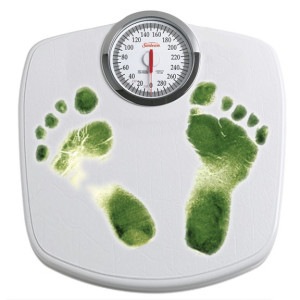 Like someone on a diet who wonders why, despite their best efforts, they can’t seem to lose weight, we sometimes make mistakes in our choices to save energy in our homes. Unless you knew better you’d expect that these seemingly sensible energy saving actions would make an important difference in how efficient your home is and how much energy you could be saving:
Like someone on a diet who wonders why, despite their best efforts, they can’t seem to lose weight, we sometimes make mistakes in our choices to save energy in our homes. Unless you knew better you’d expect that these seemingly sensible energy saving actions would make an important difference in how efficient your home is and how much energy you could be saving:
- Replacing your windows
- Weatherstripping and caulking
- Heating system replacements, tune ups, and filter changes
- Floor insulation or basement duct sealing
- Water heater replacements and tankless gas water heaters
- Small behavior changes: cleaning fridge coils, closing drapes at night, cooking with lids on pots, changing furnace filters frequently
After all, don’t ads and well meaning “green guides” recommend many of these actions and seem to suggest they offer big energy savings? Wouldn’t it be worthwhile to understand which actions were the most worthwhile, even if they aren’t so obvious or aggressively promoted?
Thanks to decades of research on tens of thousands of home energy retrofit projects across the country independent energy expert Michael Blasnik DOES know better. He has studied how much energy each of these actions actually saves and the answer is decidedly(and sometimes counterintuitively): not much!
So what does make a difference? Here’s what Michael knows (and we’d all do well to pay attention to). Notice there are no solar panels of expensive technology involved, just the proven actions that help us use less to begin with.
INSULATE
Adding or increasing insulation makes an important difference. The less there is to begin with, the greater the difference. The first place to insulate or add insulation, is the attic, then the walls, then the foundation. But insulation alone is not enough we also need to…
AIR SEAL
Our homes have lots of leaks. We lose lots of energy through these leaks. Though we imagine the leaks to be where we can feel them, like around doors and windows, the really important ones are generally in places we can’t see, so don’t think about. Air sealing in attics (around pipes, chimneys, gaps in framing, etc.) and along the edge where your house sits on its foundation can be the most important and effective places to seal. As Michael says, “effective air sealing is often the largest unexploited savings.”
THERMOSTATS
When we’re not at home it can make a meaningful difference to manage the temperature in our absence, a few degrees cooler in heating season or warmer when cooling can add up without any impact on our comfort. Learn to use a setback thermostat. If you don’t have one, install one.
DUCTWORK IN ATTICS OR CRAWLSPACES
If your home has ductwork and it runs through spaces that are closer to outside temperature than inside, sealing them so they are not leaking air and insulating them so they do not lose the energy they are transferring makes an important difference.
OLD HEATING SYSTEM REPLACEMENT
If you have an old system that has a low efficiency and is being replaced with a new high efficiency system the difference does matter. No matter what, always choose a high efficiency system, and do all you can to reduce the amount of energy it will need to provide by insulating and air sealing first. In the energy world, we always advise: “Reduce, then Produce.”
HOT WATER
Understanding that things that need to be heated use the most energy, determine how to use less hot water. Fix leaks (this makes a BIG difference). Use the most efficient clothes and dishwashers, and use cycles that work with cold water. Use low flow showerheads.
USE LESS ELECTRICITY
Replace (and don’t save) an inefficient refrigerator or dryer. Wherever possible use fluorescent of LED lighting. Use motion detectors or a timer for outside lighting. Unplug stuff that draws energy when not in use (use plug strips). Try a clothes line. I advocate getting a power monitor so you can see how much energy your house is using at any given time. You’ll notice that lights are left on (I know, you think you turn them off but this tells the tale) or the difference it makes when equipment is disconnected, and hopefully so will the whole family.
Like any diet – and let’s face it, we could all use to lose less energy – its important to know which actions will actually make a difference in reaching our goal. Thanks to Michael’s dedication to understanding how our homes really use energy we can focus our attention where it matters most.
